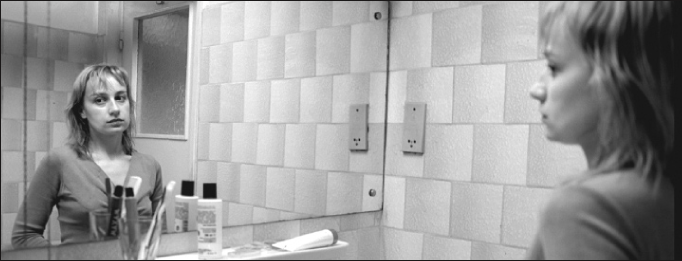By Leonard Quart
4 Months, 3 Weeks and 2 Days
Written and Directed by Critsian Mungiu
Opens Jan. 25
323 Sixth Ave., at W. 3rd St.
(212-924-7771; ifccenter.com)
The best film I got to see at the New York Film Festival last fall was the Cannes award-winning “4 Months, 3 Weeks and 2 Days,” directed by Critsian Mungiu. The film demonstrates yet again that Romania is going through a cinematic renaissance. The film is shot simply and naturalistically in long takes including a number of tracking shots, and is devoid of music, virtuoso editing and camera angles. In an interview, Mangiu stated that what he wanted to do “was abstain from being spectacular in favor of being believable.” And he succeeds in directing an honest story — the actors give totally unaffected performances — that has great emotional impact.
Set in 1987 during the final years of the tyrannical and arbitrary Ceausescu regime (the most repressive in Eastern Europe) Gabita (Laura Vasiliu) is a dependent, thoughtless student who finds herself pregnant in a country where abortion is illegal. Assisted by her deeply caring, emotionally much stronger and more resourceful friend Otilia (Anamaria Marinca, an arresting actress who is in almost every scene), Gabita seeks an illegal abortion. Handling everything for the child-like Gabita, Otilla must find a hotel room and enough money to pay the abortionist for terminating the pregnancy. The backstreet abortionist she hires, Mr. Bebe (Vlad Ivanov), is a leather jacketed, insidiously soft-spoken man, who quickly turns cruel and corrupt.
The friends’ plan is ill conceived, and it quickly goes awry. They don’t have enough money to pay the harsh, raging Bebe, so he demands sex from Otila in lieu of money. The whole process is an arduous one, and is meticulously detailed by Mungiu, including the abortion with a probe and Otila disposing the fetus. It’s all very squalid, and it leaves Otila quietly furious and in despair — poignantly conveyed in one silent shot of her bent head and rigid back, and another stationary medium shot where she sits silently and utterly alienated at a convivial dinner party of doctors at her boyfriend’s parents’ apartment where she must sit through banal talk about recipes and how spoiled the younger generation is.
The Romania of 1987 is bleak. The night streets are desolate and poorly lit, and touched with ominous sounds and shadows; black marketers sell Kent Cigarettes in barren hotel lobbies; identity cards are constantly checked; and the people, including the better off, queue up for hours at shops for food. But Mungieu claims he was not trying to make a political film, and there is no mention of communism or Ceaucescu by any of the characters. In fact the doctors at the party seem to generally approve of the regime. But the film cannot avoid being an implicit critique of the Ceausescu years.
The final scene is a two shot of the two friends sitting in silence in the hotel dining room, the chain-smoking, hungry Gabita looking at the menu, offering not a word of gratitude to or concern for Otila. We assume this ill-starred friendship is over, and the self-involved Gabita will come out unscathed, while Otila will be left to live with the entire emotional trauma.
I feel it’s become my mantra, but low budget, human stories like “4 Months, 3 Weeks and 2 Days,” shot plainly but trenchantly, are infinitely more interesting than more large-scale works crammed with beautiful compositions and stylistic fireworks that have little of an emotional or intellectual center.




































